8 reasons why you should consider a VPN for your iPhone
Make your iPhone more secure than ever before
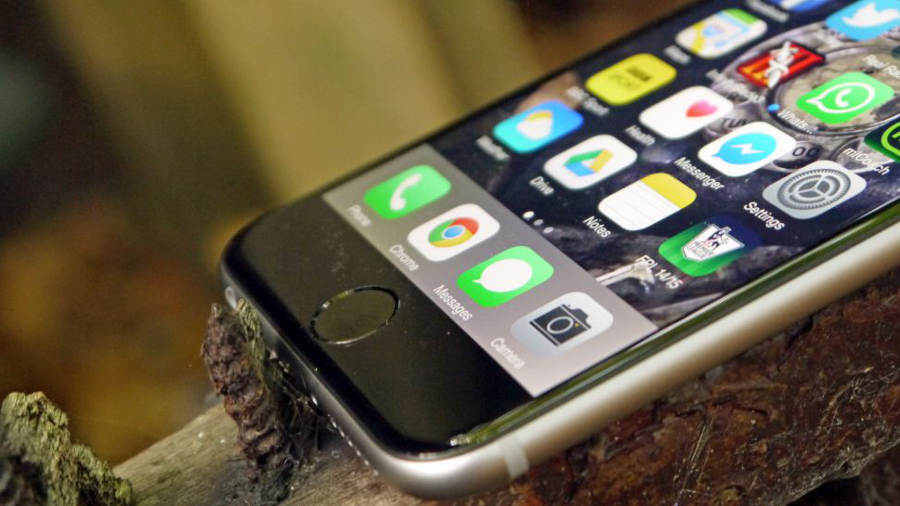
Apple’s iPhones are renowned for their robust security. After all, how often do you hear about iPhones getting infected with viruses? But despite Apple’s stringent security measures, there’s still always a chance that your iPhone could be compromised. A simple measure to further boost security on your device? Install a VPN.
Consumers across the globe are using VPNs for security. But that's just the tip of the iceberg when it comes to using an iPhone VPN. Think better internet accessibility, improved gaming - even, in some circumstances, better pricing on online shopping!
In this article, we cover a few of the key reasons why you may want to consider downloading a VPN for your iPhone. Or, if you already have one, highlight some of the less common VPN uses you can take advantage of.
Our number #1 rated iPhone provider is ExpresssVPN
ExpressVPN takes all the power and functionality of its desktop client and packages it all up in a streamlined, simple-to-use app. It offers over 3,000 servers, with industry-leading connections speeds and a proven track record on unlocking blocked apps - try it risk-free for 30 days with Express's money back guarantee.
1. Access geo-blocked content
There's a common problem with streaming services: geo-blocking. This is when a service prevents users from viewing or installing content because of their geographical location. For example, when you’re unable to find a title on Netflix but your friend in a different country has access to it. And, sometimes, a streaming service may not even be available where you are, like HBO Max, which is only present in the US.
Using a VPN for streaming is handy for bypassing geo-restrictions because it connects you to servers in other countries. To a streaming service provider, your internet traffic looks local, so it unlocks that region’s catalog for you. With a VPN on your iPhone, you can unlock a new world of entertainment on the go and, when you're travelling, make sure that you can still watch what you'd normally be able to at home.
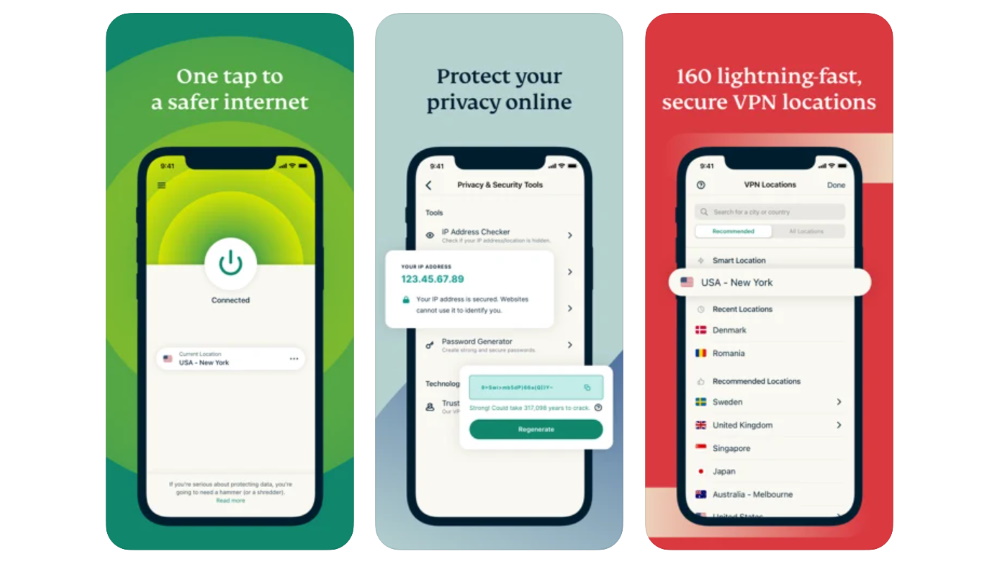
2. Tunnel through restricted apps
Whilst connected to your school or office WiFi, you may have faced restrictions when trying to access social media or other websites and apps on your iPhone. This is because most schools and many companies limit internet use, and they set up firewalls on the network to prevent users from accessing certain websites.
Although it’s best to comply with the rules set out by your school or workplace, if you urgently need to access a blocked website, a VPN can help. It’ll tunnel right through the firewall to securely access all the content that’s blocked. A VPN also encrypts your internet traffic data, so your online activity will be private.
Get daily insight, inspiration and deals in your inbox
Sign up for breaking news, reviews, opinion, top tech deals, and more.
3. Secure public Wi-Fi access
Public Wi-Fi, found in places like airports, hotels, and malls, is free and open for people to use, but it’s hardly ever secure. On a public network, you could be potential prey for cybercriminals waiting to steal your data or monitor your online activities.
Ideally, you’ll want to avoid relying on public Wi-Fi - cellular data is safer. But if you don’t have a choice and need to use a public network, it’s a good idea to use a VPN. Now most credible apps these days are getting much better at securing your data, but the VPN will further encrypt the network data across all the applications on your iPhone, making it even harder for intruders to read your online activity or steal your credentials.
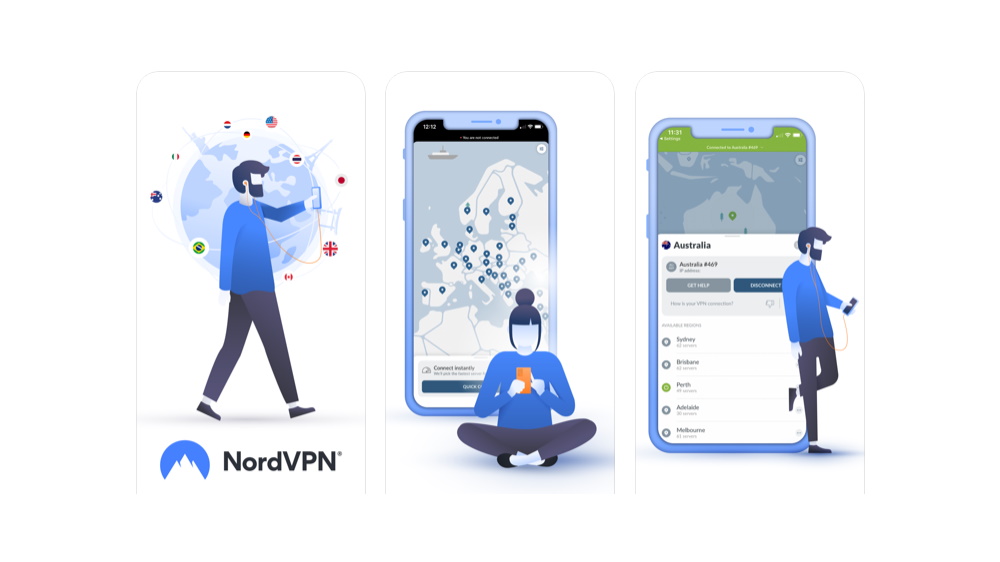
4. Better deals on services and products
Some websites use an infamous technique to pressure customers into buying - price inflation. After visiting a website to shop for something like a flight ticket, if you refresh and there’s a price hike, it’s not unlikely that it's a tactic used by the company pushing you to buy.
A VPN can help you with this. For a website to inflate pricing on its services or products, it needs to gather your IP address details and cookies. A VPN on your iPhone (or laptop) will anonymize your identity, preventing the website from collecting your data and targeting you.
Now we're not suggesting that this will work every time, but if you're continually seeing flight, hotel and other tariffs shooting up after the first time you looked, then hopping on to another server and trying again may save you some cash.
5. Avoid bandwidth throttling
Bandwidth throttling is a major inconvenience for heavy internet users in some parts of the world. Internet service providers (ISP) use bandwidth throttling to slow down a user’s internet and provide stable speeds to everyone on the network.
If you stream a lot of videos, play data-heavy online games or frequently download large files, some ISPs will track that you’re consuming a lot of data and potentially limit you.
One way to try and avoid this is by installing a VPN because it’ll mask your IP address. This way, your ISP will not know what activity of yours is using up data, and they won’t throttle your bandwidth.
Make sure you use a premium VPN for heavy internet usage. Low-quality providers will not give you a good speed for your online activities and free VPNs often have their own server speed limits in place - so completely counterproductive.
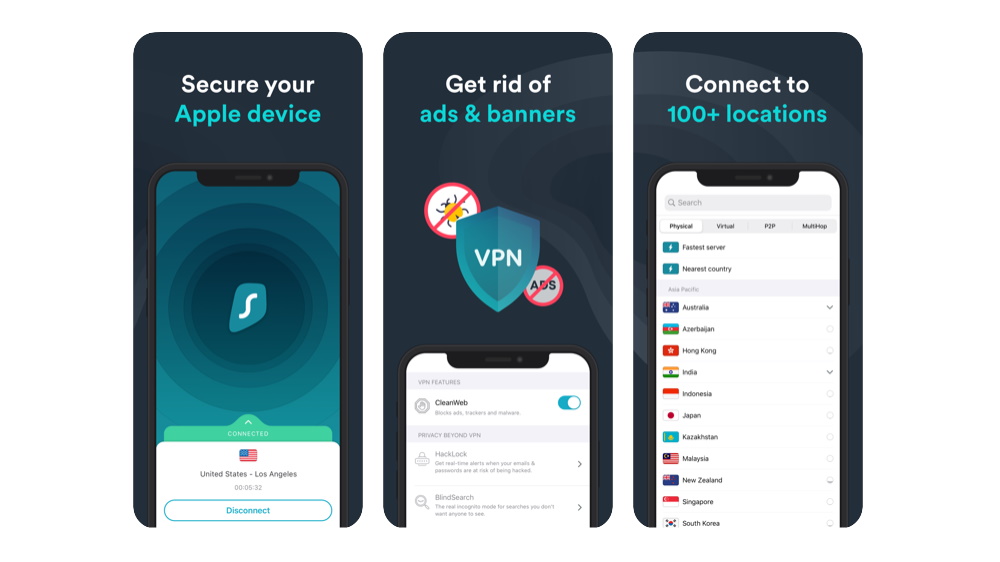
6. Extra security for online banking
Any sensitive online data must be handled with care, and that’s exactly why online banking has high-grade security. Multiple levels of security make it difficult for troublemakers to breach through and access crucial financial information.
Of course online banking apps and services are getting more secure all the time and banks go to great lengths to defeat cybercriminals. To have an even safer banking experience on your iPhone, you can use a VPN. This will set up a secure and encrypted data tunnel to the VPN’s server so that bad actors have even less opportunity to intercept or steal your information.
7. Bypass VoIP restrictions
VoIP is the technology that applications like WhatsApp and Skype use to make calls over the internet. As the world grows more connected, VoIP helps us to communicate at low costs with people living far away from us and is a crucial means of communication in a lot of the developing world.
VoIP apps are banned in certain countries like UAE and China, but a VPN can help you bypass such restrictions. Keep in mind that you’ll need a top-of-the-line VPN for this because not all VPNs are capable of working around blocks imposed by the government and letting you unblock WhatsApp and others.
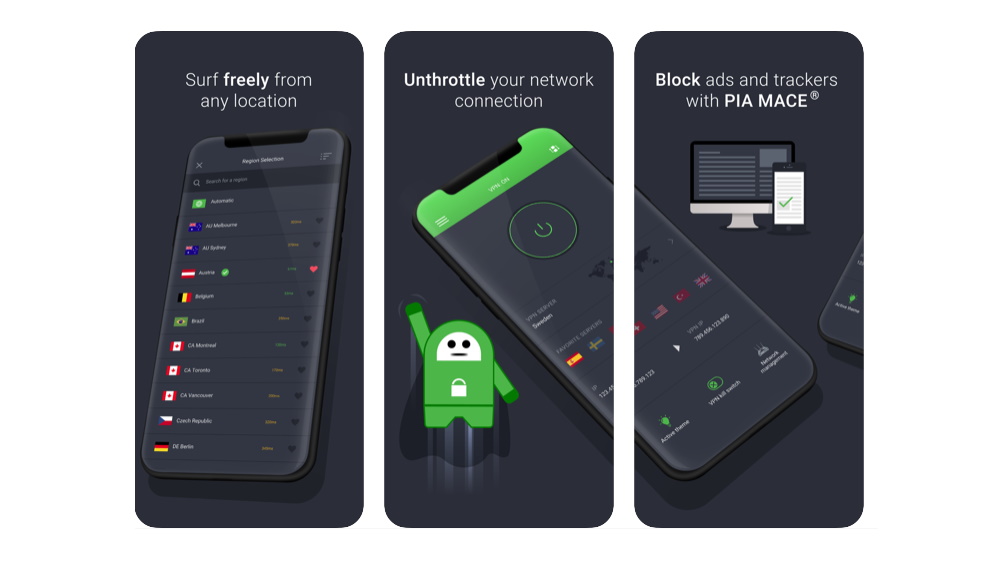
8. Improved online gaming
Believe it or not, a VPN can help with gaming too. When playing online battle royales, timing is key, and that’s why even a little lag can give another player a competitive advantage over you. If you’re experiencing lag on your normal network, a VPN can help by reducing the ping (lag) so that you have a more responsive gaming experience.
Since a VPN encrypts and reroutes your data, it generally slows down the internet speed a bit. But if you select a VPN server that’s fast and close to your game’s server, you’ll experience better speeds. Not all VPN providers give you access to good quality servers, so pick one that has servers optimized for gamers.
Considering a VPN for your iPhone?
iPhones are powerful devices loaded with terrific features. With a VPN installed on your iPhone, it’ll be even better equipped for the internet, and you’ll enjoy greater security and privacy. And, of course, you’ll have unrestricted access to the online content landscape.
There are plenty of mobile VPN apps in the App Store - good and bad - so you should research and pick one that’s useful for your requirements. We'd always suggest checking out the likes of ExpressVPN and NordVPN - they're both at the top of the VPN tree and each comes with a 30-day money back guarantee, effectively letting you try before you buy.
- Get started: How to download, set up and install a VPN on iPhone
- What about Google phones? See today's best Android VPNs
- VPN meaning: what is a VPN and what do they do?

Nikshep Myle is a freelance writer covering tech, health, and wellbeing. He has written for popular tech blogs like Tom's Guide, GadgetReview, SlashGear, and Creative Bloq, and has extensively reviewed consumer gadgets. When he’s not writing, you’ll find him meditating, gaming, discovering new music, and indulging in adventurous and creative pursuits.
